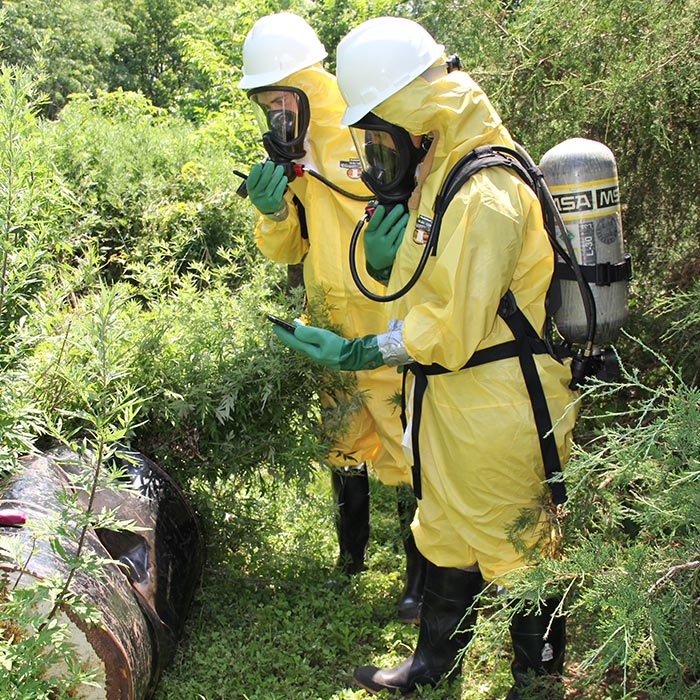Partnerships for Environmental Public Health (PEPH)

Combining Technology and Training to Protect Workers’ Health
January 06, 2023
Interviewees: Cesar Bandera, Ph.D., and Mitchel Rosen, Ph.D.
When hazardous materials are spilled or released, specially trained workers must respond to minimize the health and safety risks posed to people, communities, and the environment.
In this episode we’ll hear from two NIEHS grantees who are using cell phone-based technologies to enhance health and safety training for hazardous materials workers.
(Photo: Workers use cell phone-based technologies during a hazardous materials training exercise. Photo courtesy of Mitchel Rosen)
Combining Technology and Training to Protect Workers’ Health
Hazardous materials, often referred to as HAZMAT, have the potential to harm health and the environment. Such substances or chemicals are found in and discarded from hospitals, factories, and even homes. They are transported everyday via road, rail, air, and waterways. When hazardous materials are spilled or released, specially trained workers must respond to minimize the health and safety risks posed to people, communities, and the environment.
With funding from the NIEHS Worker Training Program (WTP), nonprofit organizations train workers (2MB) to safely handle, remove, and contain hazardous materials or waste. WTP also supports small businesses that are developing technologies used to support the health and safety training of hazardous materials workers and emergency responders.
In this episode we’ll hear from two WTP grantees: Mitchel Rosen, Ph.D., an occupational health and safety expert, and Cesar Bandera, Ph.D., an electrical engineer and small business owner. They are working together to advance hazardous materials training using cell phone-based technologies.
Interviewees:

Cesar Bandera, Ph.D., is an electrical engineer, business owner, and professor of entrepreneurship at the New Jersey Institute of Technology. Bandera is co-founder of the technology startup, CellPodium, which creates digital solutions for emergency situations and public safety. With support from the NIEHS Small Business Innovation Research E-Learning for HAZMAT Program, Bandera developed different cell phone-based technologies that provide health and safety training for workers across the nation.

Mitchel Rosen, Ph.D., is an associate professor in Rutgers University School of Public Health and the principal investigator of the Atlantic Center for Occupational Health and Safety Training, an organization funded by the NIEHS Worker Training Program. His interests include occupational health and safety, public health capacity development, and emergency preparedness. Since 1988, Rosen has managed the training of over 475,000 workers in occupational safety and health, environmental health, and public health education.


